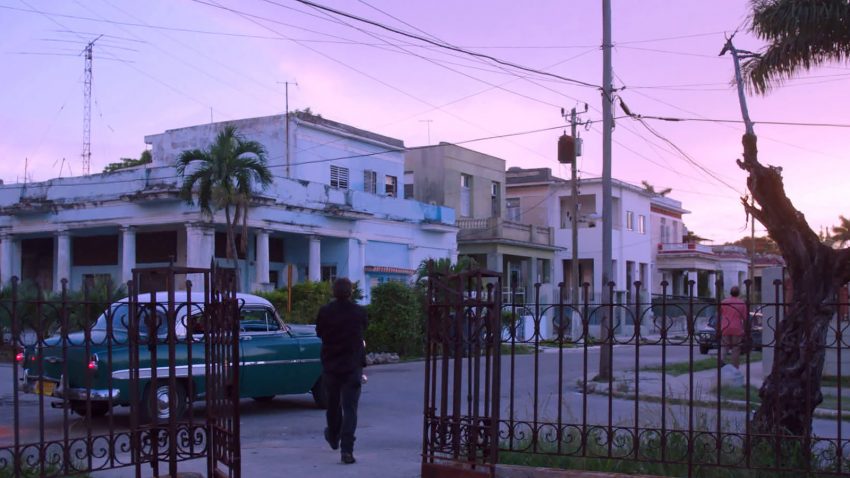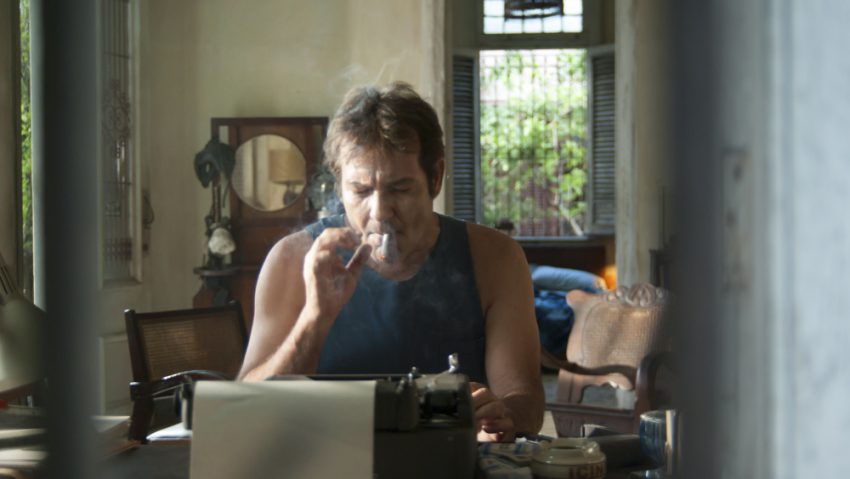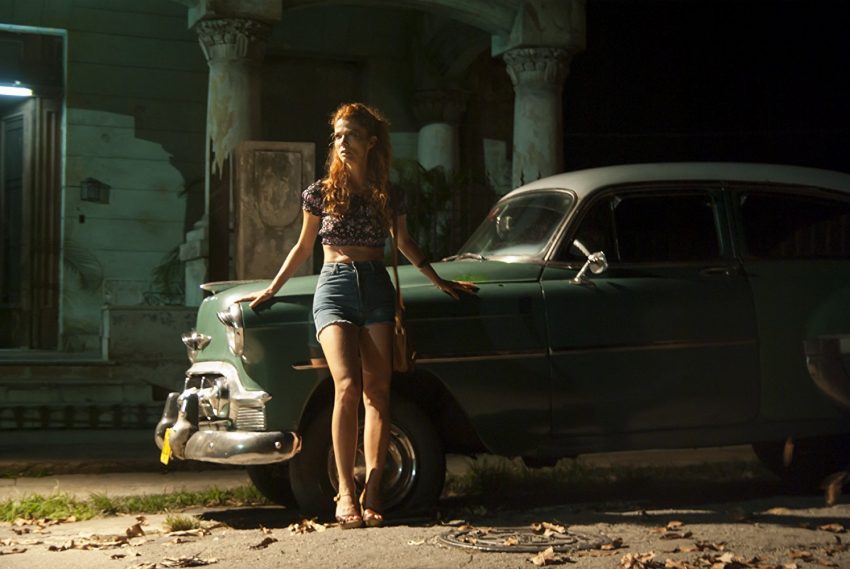Buena Vista Murder Club: Four Seasons in Havana
By Lance Charnes
June 1, 2018
Leonardo Padura is Cuba’s best-known author—though anyone other than a specialist would struggle to name another Cuban writer—and a winner of the Princess of Asturias Award, the Spanish-speaking world’s Nobel Prize for Literature. But up here in El Norte, we know him mostly for four detective novels he wrote in the 1990s featuring Lieutenant Mario Conde of Cuba’s National Revolutionary Police.
Las cuatro estaciones (Four Seasons in Havana) has brought Padura fame, a certain amount of financial and political independence, a visit by Anthony Bourdain … and now, a four-part series on Netflix. As you might gather from the title, each book (and episode) takes place in a different season in Cuba’s grand, haunted ruin of a capitol—though, in the tropics, seasons are marked mostly by whether the water in the air is humidity, rain, or both.
Conde (Jorge Perugorría, a veteran of Spanish-language cinema) is a middle-aged detective going to paunch and drink, who—as often happens in this genre—manages to be both a cynic and a romantic. He and his much-put-upon junior partner, Sargent Manuel Palacios (Carlos Enrique Almirante), investigate murders that often revolve around bad behavior on the part of Cuba’s privileged class; the solving regularly wakes the unquiet ghosts of the past.
Each case leads Conde and Palacios into one of the many pathologies that plagued Cuba during the “Special Period,” that time between the Soviet Union’s collapse and the tentative economic reforms of the 2000s (and new patronage from Venezuela) during which the sudden end of foreign aid drove the island into virtual bankruptcy. Vientos de la Habana explores the infiltration of drugs into Cuban life; Pasado perfecto revolves around corruption in the government ministry that promotes business investment in Cuba; Máscaras illuminates the place of gays in macho Cuban society; and Paisaje de otoño deals with the reverberations from the government’s confiscation of the wealth left behind by rich Cubans who fled during the 1958 revolution.

Conde is a full-throated character who dominates virtually every scene. From his battered polo shirts and chinos to the crumbling villa he lives in to the lines in his face, Perugorría wears every one of the many miles Conde’s racked up over the years. However, Conde’s also a type. He has a drinking problem, still hangs out with bros he grew up with, and (like many of his genre ilk) doesn’t seem to be able to hold together a relationship with a woman for any length of time. He grumbles about his superiors and takes advantage of Palacios at every opportunity. Does all this sound familiar? Of course, it does—Conde is a Cuban Inspector Morse, except he listens to jazz (natch) instead of opera and gets laid regularly. Still, he’s an earthy, relatively okay guy to hang around with.
It so happens that I read Havana Blue (Pasado perfecto), the first book in the series. I found it dense, digressive, and languid, three adjectives I wouldn’t normally associate with murder mysteries. I’m informed the other three books are much the same. Cut down to 90 minutes of airtime, a lot of the endless flashbacks and semi-drunken philosophizing that made the novel such a slog for me are gone from the videos. What’s left will be familiar to fans of British TV mysteries: Our Heroes get tossed a hot-potato case; they find that everyone in the victim’s orbit has a reason to kill him/her; they interrogate and/or arrest each day’s prime suspect until the case against them falls apart; then finally, one of Conde’s hunches pays off, and Our Heroes manage to annoy the villain into confessing. The main departure from British procedurals is that Conde manages to bed each episode’s leading beautiful female character (sometimes for real, sometimes only in his exceedingly vivid imagination), something that probably would’ve improved Morse’s outlook on life had he pulled it off.

And all this is really happening in Cuba—the series is a Cuban/Spanish co-production and was shot in Cuba and the Canary Islands. I visited the island in late 2015 and was actually at the scene of the crime featured in Máscaras (no, I’m not a suspect … I don’t think). The cinematography effectively captures the gorgeous wreck of Havana, from the iconic Malecón to the down-at-heels barrios and tenements where Conde frequently works, with the wildly multi-hued Cuban people bringing raucous life to the locations. If you missed the brief opening of U.S.-Cuban relations in 2015-16, this could be your best shot to see beyond the ‘50s-car clichés to get a tiny taste of what that proud, troubled island is like.
The downsides: everything’s in Spanish, so you’ll be reading your TV nonstop; the sexual politics, though appropriate for 1990s Latin America, are regressive at best by today’s standards; Conde spends a lot of time plastered, with all that entails; and the scenes of Conde with his posse do tend to ramble on more than strictly necessary.
Four Seasons in Havana is a competent, atmospheric detective tetralogy that brings familiar genre tropes to what—despite its proximity to these shores—is still an exotic and vaguely mysterious setting. The scenery’s a long way from Oxford, but the stories aren’t so alien that Inspector Lewis wouldn’t recognize the motives and measures. If you’re looking for some tropical heat with your murders, Four Seasons is streaming on Netflix on a TV near you.
Comments are closed.

Love this show. The intellectual discourse between Conde and his boss are fabulous . The sex aint bad either.